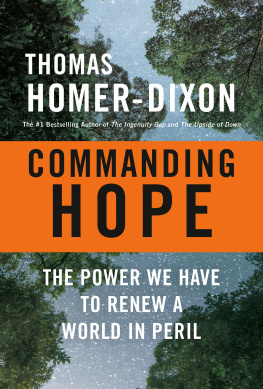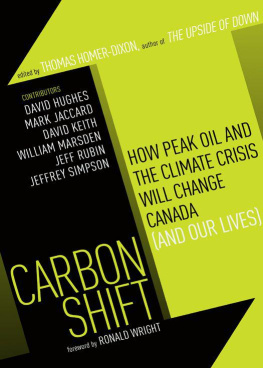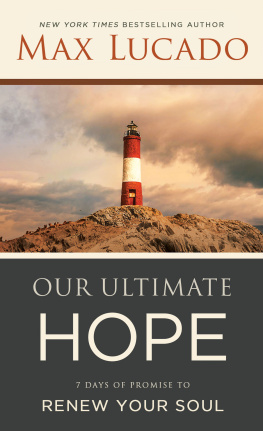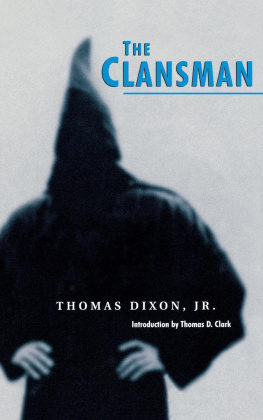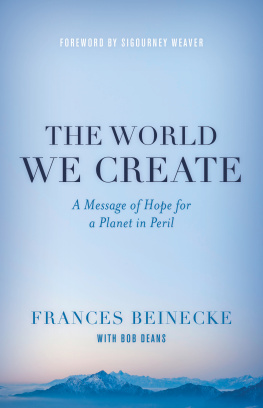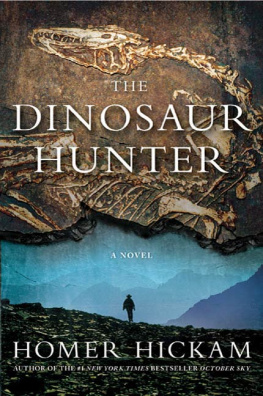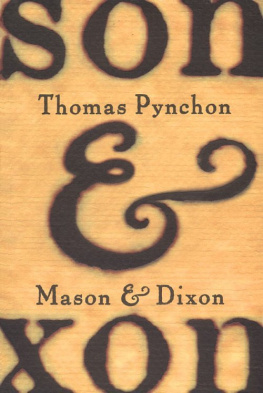Thomas Homer-Dixon - Commanding Hope: The Power We Have to Renew a World in Peril
Here you can read online Thomas Homer-Dixon - Commanding Hope: The Power We Have to Renew a World in Peril full text of the book (entire story) in english for free. Download pdf and epub, get meaning, cover and reviews about this ebook. year: 2020, publisher: Knopf Canada, genre: Politics. Description of the work, (preface) as well as reviews are available. Best literature library LitArk.com created for fans of good reading and offers a wide selection of genres:
Romance novel
Science fiction
Adventure
Detective
Science
History
Home and family
Prose
Art
Politics
Computer
Non-fiction
Religion
Business
Children
Humor
Choose a favorite category and find really read worthwhile books. Enjoy immersion in the world of imagination, feel the emotions of the characters or learn something new for yourself, make an fascinating discovery.
- Book:Commanding Hope: The Power We Have to Renew a World in Peril
- Author:
- Publisher:Knopf Canada
- Genre:
- Year:2020
- Rating:5 / 5
- Favourites:Add to favourites
- Your mark:
- 100
- 1
- 2
- 3
- 4
- 5
Commanding Hope: The Power We Have to Renew a World in Peril: summary, description and annotation
We offer to read an annotation, description, summary or preface (depends on what the author of the book "Commanding Hope: The Power We Have to Renew a World in Peril" wrote himself). If you haven't found the necessary information about the book — write in the comments, we will try to find it.
Commanding Hope: The Power We Have to Renew a World in Peril — read online for free the complete book (whole text) full work
Below is the text of the book, divided by pages. System saving the place of the last page read, allows you to conveniently read the book "Commanding Hope: The Power We Have to Renew a World in Peril" online for free, without having to search again every time where you left off. Put a bookmark, and you can go to the page where you finished reading at any time.
Font size:
Interval:
Bookmark:
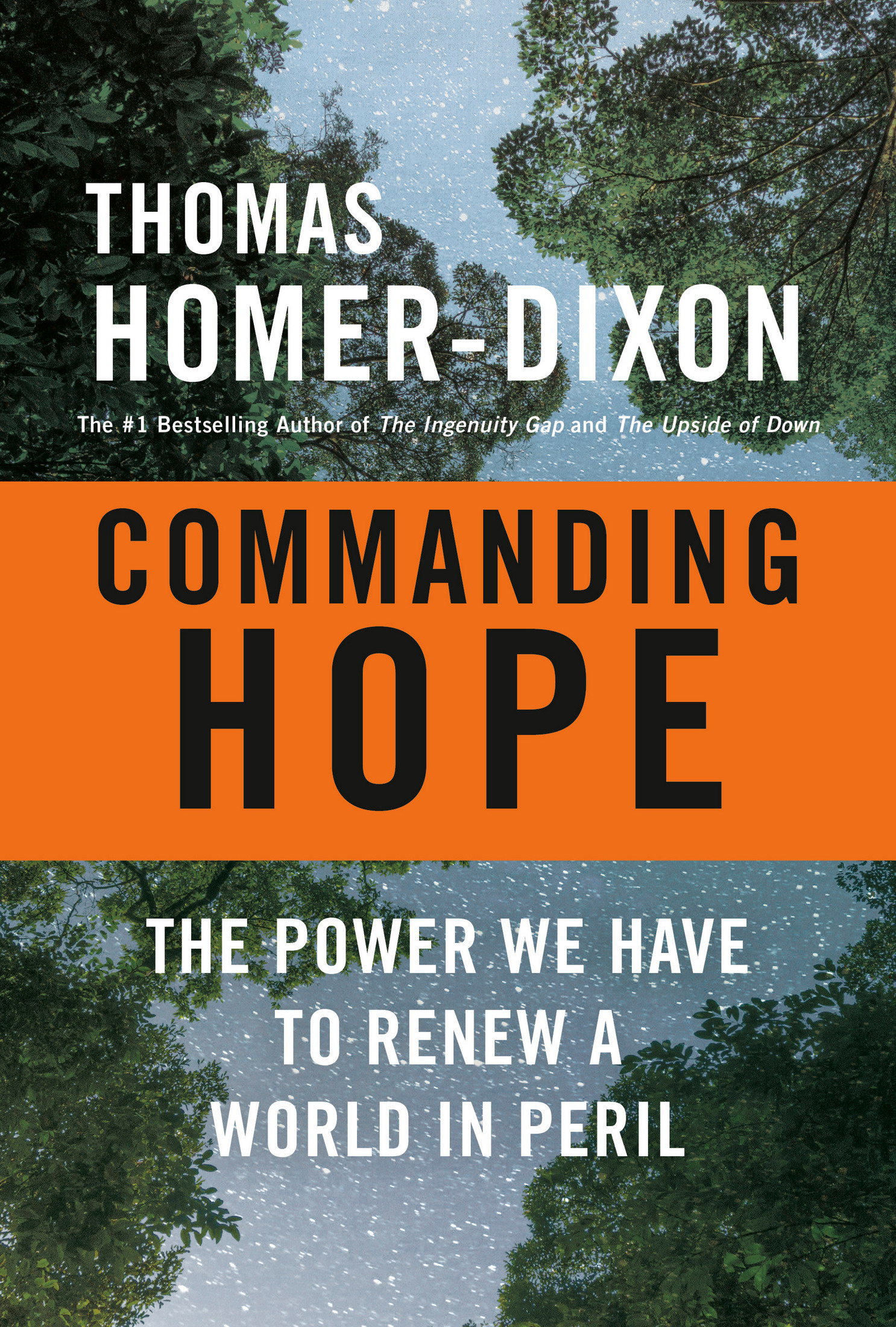
Also by Thomas Homer-Dixon
The Ingenuity Gap (2000)
The Upside of Down (2006)
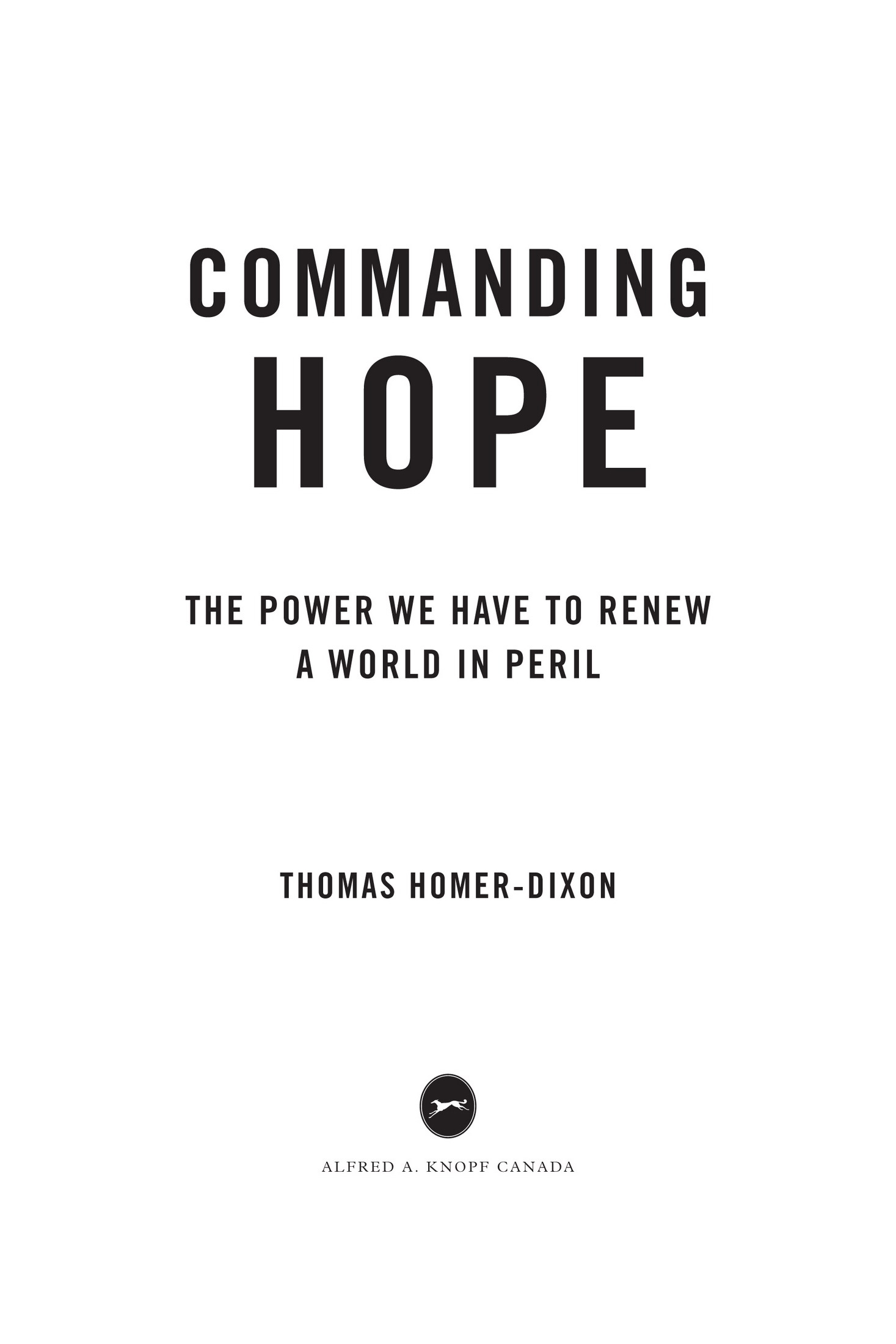
PUBLISHED BY ALFRED A. KNOPF CANADA
Copyright 2020 Resource & Conflict Analysis Inc.
All rights reserved under International and Pan-American Copyright Conventions. No part of this book may be reproduced in any form or by any electronic or mechanical means, including information storage and retrieval systems, without permission in writing from the publisher, except by a reviewer, who may quote brief passages in a review. Published in 2020 by Alfred A. Knopf Canada, a division of Penguin Random House Canada Limited, Toronto. Distributed in Canada by Penguin Random House Canada Limited, Toronto.
www.penguinrandomhouse.ca
Knopf Canada and colophon are registered trademarks.
constitute a continuation of the copyright page.
Library and Archives Canada Cataloguing in Publication
Title: Commanding hope : the power we have to renew a world in peril / Thomas Homer-Dixon.
Names: Homer-Dixon, Thomas F., author.
Identifiers: Canadiana (print) 20200199579 | Canadiana (ebook) 20200199633 | ISBN 9780307363169 (hardcover) | ISBN 9780307363183 (EPUB)
Subjects: LCSH: Environmental responsibility. | LCSH: Creative ability. | LCSH: Social change.
Classification: LCC GE195.7 .H63 2020 | DDC 363.7dc23
Text design: Lisa Jager
Cover design: Lisa Jager
Image credits: (trees) simonlong / Moment / Getty Images; (starry sky) Shotaro Hamasaki / Unsplash

a_prh_5.5.0_c0_r0
For Ben and Kate
Nobis non desistendum est
Hope is stubborn. It exists in us at the cellular level and works up from there, as part of the urge to live. So hope will persist. The question is, can we put it to use?
KIM STANLEY ROBINSON
CONTENTS
Prologue
Our Own Story
When we get our story wrong, we get our future wrong. David Korten
WHATS THIS STORY ABOUT, MUMMY?
Our four-year-old daughter, Kate, had found a printed copy of an article on my wifes desk. But she couldnt understand its bold title: Approaching a State Shift in Earths Biosphere.
It was early June 2012, and the article had just appeared on the website of the top scientific journal Nature. News about it was flashing through networks of scientists, academics, and others interested in how our planet is changing. Its twenty-two authors, among them some of the worlds leading ecologists, had reviewed findings on how forests, grasslands, and other natural landscapes react when severely disrupted.
They reported that when at least half of a landscapes area has undergone major change, its undisturbed parts are far more likely to flip suddenly to a totally new state. Logging more than half a forest while leaving behind only fragments of undisturbed forestland, for example, dramatically boosts the risk that the populations of plants and animals in those remaining fragments will crash. The scientists then used the latest data on our human species growing numbers, economic activity, and global impacts like climate change to estimate when, on the current course, Earths total landscape will cross that 50 percent threshold.
Their conclusion: somewhere around 2045.
My wife, Sarah, a professor of geography, took a deep breath before answering: Its about how the world might change when youre a little bigger, darling.
Okay.
Feeling sad, Sarah went back to grading papers. But Kate flipped the article over to the blank side of the back page. Helping herself to two colored pens, she drew a picture of a green-and-red flower growing out of a green landscape. She gave the flower a red happy face. Underneath, she drew a little stick figure of herself, also with a happy face, waving at the viewer.
Kate was telling her own story about what she wanted the world to be like when she was bigger.
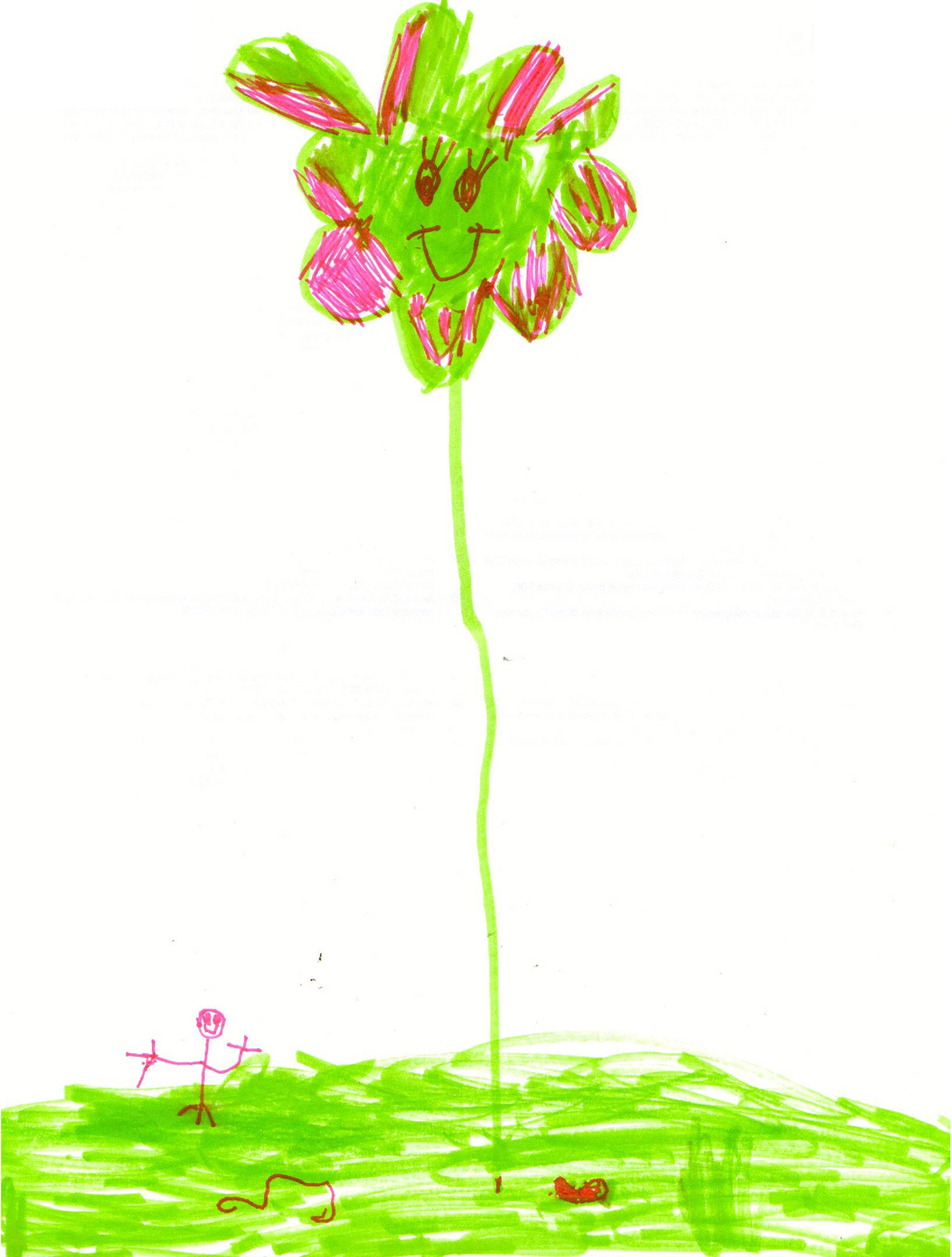
REACHING FOR LIGHT
Maybe you feel it too: a creeping sense that the world is going haywire. A darkness spreading across the horizon of our aspirations for our families, our communities, our world. An emerging dismay that possibilities for a good future, for ourselves and our kids, are ebbing away.
If so, your feelings are not without base; they do reflect a real shift in the state of our world. Accumulating scientific evidence and data show that key trendlines gauging humanitys well-being economic, social, political, and environmental have indeed turned sharply downwards.
Just twenty years ago a feeling of exuberance still animated many societies. After the Soviet Union collapsed and before the war on terror, political, business, and intellectual leaders in the West declared that a fusion of capitalism, liberal democracy, and modern science would create a future of near-boundless possibility for all humanity. Now, humanity is at a perilous juncture. Problems like climate change, economic and social inequality, and the risk of nuclear war have become critical. In 2020, COVID-19 stopped the world at large in its tracks. International scientific agencies are issuing report after report declaring that a global environmental catastrophe is imminent, now probably far earlier than 2045, and maybe even as soon as a decade from now. Meanwhile, reason and scientific fact often seem impotent before entrenched vested interests, worsening social polarization, and rising political authoritarianism.
As our prospects seem to diminish by the day, some of us retreat inwards to focus on things close to us in time and space, such as our friends and family, in person and on social media. Others try denial, maybe by claiming that the evidence for problems such as climate change and even pandemics is invented by people who benefit from scaring us. Or, we become fatalistic, declaring we cant do anything about the problems because weve gotten used to a way of living or because the problems are the fault of the rich, or the poor, or immigrants, minorities, or them over there anybody but us. Some of us rally to authoritarian leaders who tell a simple story about whats wrong and declare they can make things better with bold, harsh action.
Anxiety about the future, detachment, self-deception, and feelings of resentment and helplessness this is a perilous psychological state the starting line of a fast track to the end of hope. It also makes the future we fear far more likely to happen, because the best way to ensure well fail to solve our problems is to believe we cant.
We all know whether explicitly or unconsciously that to escape this trap we need to come up with promising ideas to address the critical problems humanity faces. But to do so, we need to understand whats causing the problems in the first place. As any medical doctor would say, good prescription depends on good diagnosis. To that end, over the last forty years Ive studied humankinds global challenges closely, particularly worsening economic insecurity, climate change, pandemics, scarcities of critical resources like fresh water and clean energy, weak and incompetent governance, and the factors that keep our societies from innovating effectively to address such problems. Ive also studied how these challenges can combine to multiply their total impact, with cascading consequences that sometimes lead to mass violence, including terrorism, genocide, and war.
Font size:
Interval:
Bookmark:
Similar books «Commanding Hope: The Power We Have to Renew a World in Peril»
Look at similar books to Commanding Hope: The Power We Have to Renew a World in Peril. We have selected literature similar in name and meaning in the hope of providing readers with more options to find new, interesting, not yet read works.
Discussion, reviews of the book Commanding Hope: The Power We Have to Renew a World in Peril and just readers' own opinions. Leave your comments, write what you think about the work, its meaning or the main characters. Specify what exactly you liked and what you didn't like, and why you think so.

